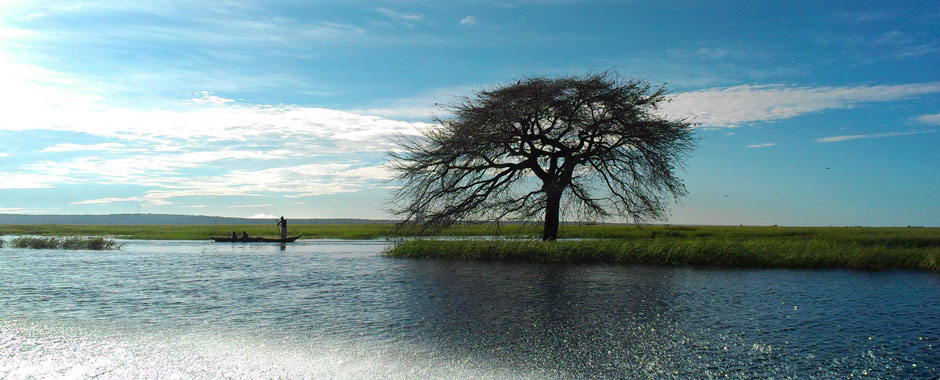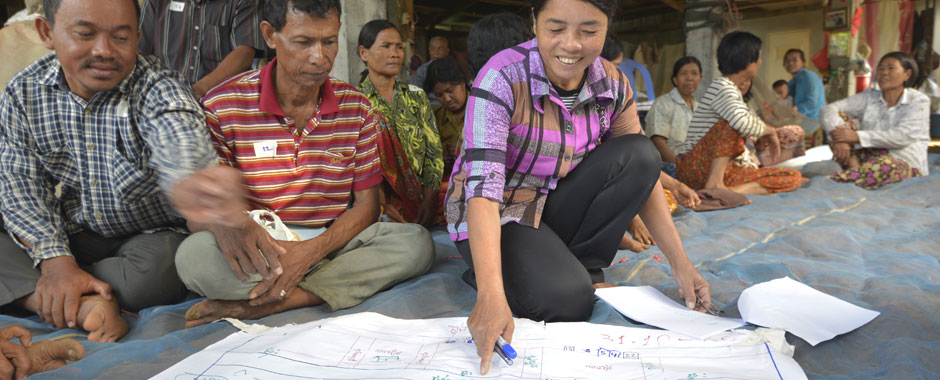by Marina Apgar and Boru Douthwaite
The Sustainable Development Goals provide a framework that may open up space to move beyond the siloes of disciplines and sectors. Those of us inclined to see development as systemic and who, through our research practice, engage with stakeholders in the messiness of uncovering solutions to seemingly intractable problems together, might today feel somewhat vindicated and excited about the growing imperative to put our research to use in tackling development challenges.
But, as we explore in a new paper, there are important lessons to consider from participatory, reflexive programmes that link research and action for development.
Recognising complex challenges
Most people now understand today’s global and grand challenges, like climate change, deforestation and inequality, as the product of complex interactions between linked human and environment systems that require multi-stakeholder engagement and learning coupled with the best disciplinary science. They are not just technical problems, so we are no longer seeking the next best expert technical solution.
Even more exciting is that this framing is beginning to influence how research is funded. One example of this is the UK Global Challenges Research Fund, which promises to fund research that addresses some of the intractable development global challenges, and has the ability to produce real impact in the world.
The good news, then, is that many years of advocating for more integrated approaches to working with complex social-ecological systems to learn our way to more equitable and sustainable futures, seems to have sunk in.
Is research and development really changing?
Yet what this means for how we work and how we are supported to do so within research institutions and the broader research community, may require deeper shifts in how we are organised and funded, and importantly, how we are evaluated; to ensure that we are not all simply selling old wine in new bottles, or using the right buzzwords to fit in to the latest research fad. Even for the most enthusiastic engaged researchers, the question remains, whether our institutions and ways of working are ready to respond in this era of global challenges?
In our recent paper, ‘A new professionalism for agricultural research for development’, (paywalled, but a pre-print version is here) we explore this question within the realm of formal agricultural research, and its attempts to engage with agricultural systems to reduce poverty.
Agricultural research has had a long history of working directly with the world’s rural poor. As an applied research field, the question of impact (improvements in peoples’ lives as a result of an intervention) entered its discourse early on, and for over 30 years a lively debate has been sustained about ‘how’ research can support poverty reduction for the most vulnerable (for examples of this, see Towards a Learning Paradigm: New Professionalism and Institutions for Agriculture, Systems approaches to agricultural development: The Hawkesbury experience and the book Adaptive Collaborative Approaches in Natural Resource Governance: Rethinking Participation, Learning and Innovation).
In spite of this debate about impact within the field of agricultural research, its scientific roots remain strong, and continue to influence what types of research is valued. Funding still tends to support linear and less engaged models of technology development. In other words, agricultural research is still pushing solutions out to people who might be recognised as having a role to play in adapting them, but, it is assumed, will ultimately adopt them to improve their productivity.
The result is that systems-oriented approaches to agricultural research that favour participation and include social science alongside technology development remain ‘alternative’ and even ‘experimental’. They are, in the minds of some, approaches to be played with at the fringes of formal biophysical science endeavours that are mainly concerned with developing new technologies.
Learning from participatory, reflexive approaches
In the paper, we share learning from one of the three now closed CGIAR Research Programs, on Aquatic Agricultural Systems. It was born of a desire to put a participatory, reflexive and development outcome oriented approach (instead of just research output) front and centre in engaging with poverty in aquatic agricultural systems. These are diverse social-ecological systems in floodplains, deltas, and coasts where many poor people depend on diverse livelihoods including fishing and agriculture – for example, the Zambezi floodplain in sub-saharan Africa or the Ganges-Bumiputra delta in Bangladesh.

Perhaps its most significant innovation was to try to learn from the approach it called Research in Development (RinD). In doing this, it attempted to answer the deeply challenging questions around ‘how and in what contexts can agricultural research make a difference to the poor and marginalized?’ It was this framing that has enabled the learning about processes and ‘how we learn’ to be valued as a research output in its own right.
The paper synthesizes learning of over three years of implementation by more than 20 partner organisations in five countries – a rich reflective experience.
RinD was about much more than simply adding some interdisciplinary research questions on to an otherwise technology driven intervention. At the heart of what makes the approach effective when tackling complex problems, is that both technological and people centred approaches are brought together through multi-stakeholder engagement. The program took a broader starting point focused around addressing development challenges as agreed by stakeholders in the places the program engaged in. It also recognised the need to build a broader skillset for implementation.
Both these ways of working challenge institutions that define sharp and bounded research questions as their starting point.
Lessons from the CGIAR program on Aquatic Agricultural Systems
As global research communities take on the new and exciting agenda of reaching the SDGs through addressing global challenges in an interdisciplinary way, the experience of the CGIAR Research Program on Aquatic Agricultural Systems provides lessons that we’d do well to listen to:
- Investing in learning how to broaden our starting point as researchers and how to engage with a broader skillset does lead to greater impact, but it requires commitment to longer funding timeframes to appreciate the return on investment;
- Central to success is tapping in to our own and others’ mental models to bring constructivist and positivist approaches together – to appreciate, for example, that participatory experimental trials with farmers can generate technologies but also create links and trust between stakeholders that builds capacities to engage in challenges as they come;
- Staging of an intervention that uses a strengths-based mindset, combined with skills for critical reflection and bringing hard science in to the mix, is significantly different to conventional research, and it requires different engagement with partners.
Learning from the challenges
Finally, we offer rare reflections from attempting, and indeed failing to succeed, in mainstreaming the approach within a large formal agricultural research system. We all know that we learn more from what is difficult and doesn’t work in life, yet as researchers pursuing new funding opportunities it is risky, indeed even shameful to admit failure.
In our failure, we identify two preconditions which we feel are necessary if research funders and implementers are to enable research to tackle, with others, the big development challenges and have real impact:
- We must honestly engage with the evidence that integrated and systemic approaches follow a different dynamic, and accept that it takes longer to establish the relationships and trust required to build capacity to work differently in order to see greater impact over time;
- A complexity-aware and changeable theory of change needs to be agreed with the donor as the basis of summative evaluation. For learning, real-time monitoring and evaluation based on regular reflection is required to help the work to adapt to changing context, opportunities and threats. Such monitoring and evaluation becomes the responsibility of all involved and it takes time to build the capacity and culture to underpin it.
From this experience, we see that if and when we dare to honestly ask the big questions about how to achieve impact at the outset of a program – instead of pretending that we know how all the impact will be achieved a priori – we end up learning much more about how to make a difference.
For this to be possible, we need to build a culture of integrity and honesty around the messy and social process through which change happens, in other words, how we actually achieve impact when addressing complex development challenges through research.
About the authors
Boru Douthwaite and Marina Apgar are among the authors on the paper ‘A new professionalism for agricultural research for development’ (see a pre-print version here), published in the International Journal of Agricultural Sustainability.
